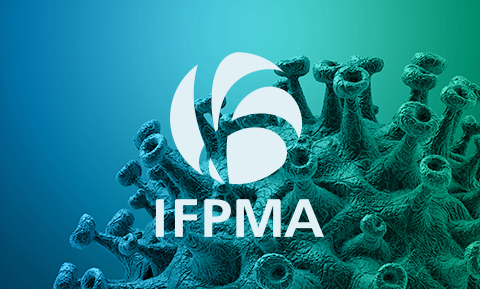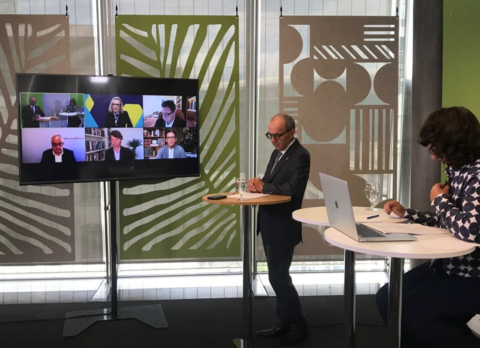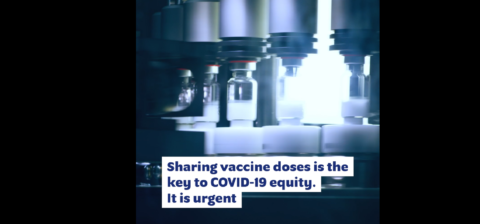- This month, COVID-19 vaccine manufacturing output will pass the 9.3 billion dose mark. The biopharmaceutical industry renews its May commitment to the G20 to collaborate with governments to support effective solutions to urgently address vaccine equity.
- At current production rates, swiftly rolling out vaccines to those who still need them looks achievable, if the political will, planning and collective action efforts are redoubled. The G20 can play a critical role in focusing political attention on ramping up dose sharing, addressing bottlenecks in the supply chain and supporting country preparedness.
- With COVID-19 vaccine supplies on track to outstrip global demand and voluntary collaborations with innovative vaccine manufacturers set to change Africa’s vaccine manufacturing landscape in years to come, initiatives such as the proposed Intellectual Property TRIPS waiver are a distraction. All efforts should be directed towards advancing vaccinations.
19 October 2021, Geneva – As G20 heads of state and government prepare to meet in Rome on 30-31 October, COVID-19 vaccine production will reach the 9,3 billion doses mark. Of the world’s 5.8 billion adult population, 3.3 billion people have been vaccinated[1]. Urgent steps need to be taken to advance vaccinations programmes that reach the remaining 2.5 billion adults. The biopharmaceutical industry renews the commitment it made to the G20 in May 2021 to work with governments to support these efforts. The vaccine production effort is estimated to reach 12.5 billion doses by the end of 2021 and double again to 24 billion doses by June 2022, at which time vaccine supplies will most likely outstrip global demand. These numbers show that the premise for the Intellectual Property TRIPS waiver proposed a year ago, to help address an assumed shortage of vaccines as the solution to vaccine equity, has been overtaken by the facts. The solution to vaccine equity today resides in dose sharing, continuing to optimize output through manufacturing scaling up and voluntary licensing; as well as working together to enable countries to efficiently and effectively vaccinate their people.
The International Federation of Pharmaceutical Manufacturers and Associations (IFPMA) member companies are working with COVAX to accelerate supply. The companies are continually engaging and sharing information with COVAX and other organizations on the timing of direct supply and are working with partners on the complex process to enable dose sharing to COVAX AMC countries. IFPMA member companies are acutely aware that the countries awaiting the deliveries need time to secure necessary resources and prepare to roll out their vaccination plans. They stand ready to discuss with Gavi and UNICEF the current upstream and downstream supply and delivery challenges and work collaboratively on ways to improve processes.
IFPMA member companies involved in the COVID-19 vaccine manufacturing remain committed to fair and equitable access and, thorough IFPMA, are active founding partners of the ACT-Accelerator. The biopharmaceutical industry continues to apply responsible pricing for COVID-19 vaccines and to follow through on its commitment made in both in May and September 2021 to work with governments and partners including COVAX in support of efforts to help countries reach their vaccination targets.
Ongoing discussions and collaborative efforts to address allocation, technical, trade, and program challenges are what will get us out of this pandemic. Other proposals, while well intentioned, are a distraction. It is now a year since South Africa and India proposed an Intellectual Property TRIPS waiver on COVID-19 tools. The initial premise that the IP waiver would help address an assumed shortage of vaccines as the solution to vaccine equity, is unfounded. COVID-19 vaccine manufacturing output, driven principally by USA, EU, China, and India, is now amounting to over 1 billion vaccines each month. The 9.3 billion COVID-19 vaccine dose output by the end of October, and the estimated production of 12.5 billion by the end of the year, demonstrates the industry’s success in trebling global vaccine capacity in less than a year. In addition, major strides have been made over the past year to support production capacity with vaccine manufacturers setting up over 300 voluntary collaborations. In particular in Africa, a number of important agreements and commitments have been made to share know-how of mRNA and adenoviral vector vaccine platforms via voluntary collaborations. Building on this, efforts must continue towards working together to vaccinate people in those parts of the world where vaccination rates are too low, including working to ensure countries are prepared to roll out vaccinations.
Thomas Cueni, Director General of the International Federation of Pharmaceutical Manufacturers and Associations (IFPMA) proposes: “As an industry, we have put our energies into developing and producing treatments and vaccines against SARS-CoV-2. The numbers show that the scale up of vaccines is on track to ensure that everybody who needs to be vaccinated can be. We see a turning of the tide. The supplies are available; now all efforts should be focused on distributing and sharing doses. It would be our hope that the energy focused on undermining intellectual property could be channelled into collectively addressing vaccine equity, supporting the growing political will of G20 countries to ensure the necessary, collective action to get jabs into arms; we all agree this is the right thing to do.”
[1] Our World in Data https://ourworldindata.org/covid-vaccinations











